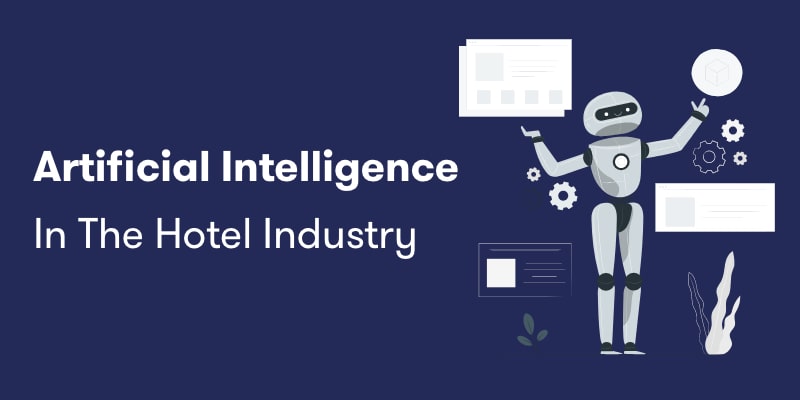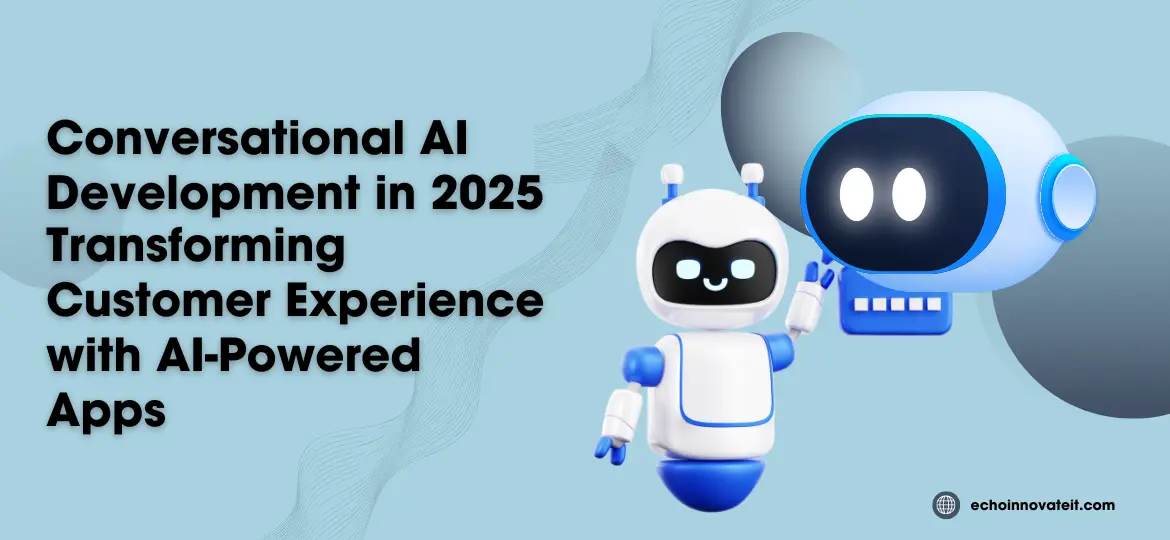How AI Is Reinventing the Hospitality Industry in 2025
Artificial Intelligence (AI) has become a cornerstone of innovation in the hospitality industry. In 2025, hotels, resorts, and travel businesses across the USA are leveraging AI technology to deliver hyper-personalized guest experiences, improve operational efficiency, and elevate their digital presence—especially through mobile apps. Whether it’s a smart concierge available in your hotel’s Android or iOS app or predictive analytics that streamline backend operations, AI is transforming how hospitality works.
AI-Driven Trends Shaping Hospitality in 2025
The integration of AI in hospitality is growing rapidly, driven by rising traveler expectations for convenience, personalization, and safety. Major chains and boutique hotels alike are turning to AI-powered mobile apps that serve as digital hubs—allowing guests to control room settings, request services, and receive recommendations, all from their smartphones. AI is enabling smarter booking engines, automated guest messaging, and seamless check-in/check-out through iOS and Android apps.
Enhancing Guest Experience with Mobile and AI Integration
AI chatbots and virtual assistants integrated into mobile apps are now standard across forward-thinking hotels. These assistants handle everything from answering FAQs to booking spa appointments—available 24/7 on guests’ smartphones. Guests benefit from personalized services such as room temperature presets, tailored dining recommendations, or curated local experiences—all powered by machine learning and accessed via hotel apps.
AI also plays a major role in “smart room” experiences. Guests can adjust lighting, climate, and entertainment with voice commands or mobile controls. The use of AI-based preferences and automation makes every stay feel personalized, while reducing friction in the guest journey.
Operational Efficiency Through Automation
Behind the scenes, AI optimizes operations by forecasting demand, managing staff scheduling, and detecting maintenance needs before they disrupt service. Predictive maintenance powered by AI helps reduce downtime and costs. Mobile-based management platforms now use real-time data to dynamically allocate resources, automate housekeeping workflows, and monitor guest satisfaction.
AI also empowers revenue management. Modern systems analyze trends, local events, and historical data to set dynamic pricing. This increases profitability while staying competitive—especially when tied to upsell opportunities via mobile apps during booking or in-stay engagement.
Marketing and Direct Bookings in the Age of AI
As travelers turn to AI assistants to research and book trips, hotels can use AI-enhanced marketing tools to drive direct bookings. Personalization engines now segment audiences and send relevant offers via mobile notifications, email, or SMS. AI helps hotels avoid over-reliance on third-party platforms by creating a better user experience within their own branded Android and iOS apps.
Mobile marketing also becomes smarter. For example, if a guest books a stay via the app, AI can trigger a personalized push notification with a discount on a spa treatment—or offer a room upgrade at check-in. These intelligent moments increase guest satisfaction and revenue.
Use Cases of AI in 2025 Hospitality
Some practical examples of AI in today’s hospitality sector include:
AI-powered chatbots handling thousands of guest inquiries weekly
Facial recognition systems enabling contactless check-in
Mobile-based smart concierge apps recommending personalized experiences
AI revenue systems optimizing pricing based on competitor analysis and demand
Automated feedback analysis improving service quality in real time
Balancing AI Efficiency with the Human Touch
Despite AI’s automation benefits, successful hotels maintain a balance. Human interaction remains essential—especially in luxury and high-touch environments. AI should augment staff, not replace them. Transparency in how AI handles data, recommendations, and guest interactions is key to building long-term trust and meeting the latest digital compliance and ethical standards.
Why Hotels Are Investing in AI-Enabled Mobile Apps
By 2025, hospitality brands are prioritizing mobile-first, AI-powered strategies for several key reasons:
Guests increasingly prefer managing their entire stay through mobile apps
AI helps reduce operational overhead and improve margins
Mobile platforms create better engagement, loyalty, and brand visibility
iOS and Android app integration with AI creates a cohesive digital experience
How to Start with AI in Hospitality
If you’re a hotel owner, property manager, or travel brand, here’s how to begin:
Identify specific areas where AI can add value—guest service, operations, or marketing
Start with a feature-rich mobile app for Android and iOS
Integrate an AI chatbot to improve responsiveness and reduce manual workload
Use AI tools to automate pricing, scheduling, and customer feedback analysis
Work with experienced app developers who specialize in AI for hospitality
Final Thoughts
In 2025, AI is more than a technology trend—it’s a competitive advantage. Hotels that embrace AI-enhanced mobile apps, predictive analytics, and automation will lead in customer satisfaction, brand loyalty, and revenue growth. Whether you’re running a boutique hotel or a large resort chain, investing in AI and mobile-first solutions is essential to meet the evolving expectations of modern travelers.
Artificial intelligence (AI) refers to the performance of apparently intelligent tasks by machines. Artificial Intelligence is a concept that has existed since the 1950s. But what are the Uses of Artificial Intelligence in the hotel industry?
AI refers to computers or machines carrying out tasks that were generally thought to need a cognitive function to carry out. It is majorly related to concepts like automation and big data.
A recent report from Accenture estimated that AI-driven technologies could potentially double annual economic growth rates by 2035. This has been validated by a study by PwC estimating that artificial intelligence (AI) could add $15.7 trillion to the global economy by 2030. AI in the hospitality industry is rapidly transforming operations, enhancing personalized guest experiences, and optimizing pricing strategies with machine learning algorithms.
Despite the positive growth, AI also presents challenges such as job displacement. A report from the Organization for Economic Cooperation and Development (OECD) estimated that 14% of jobs across 21 countries are at high risk of automation. Another study by McKinsey Global Institute projected that up to 800 million jobs could be displaced by automation by 2030. However, AI-driven technologies are also creating new roles within the hospitality sector, particularly in AI-powered marketing campaigns and predictive maintenance solutions.
Hotel Tech Report recently surveyed 400 hotel guests for our annual State of Hotel Guest Technology Report 2025. Our research uncovered key insights about AI in hotels, including:
70% of guests find AI chatbots helpful for simple inquiries but prefer human interaction for complex requests.
The #1 reason guests prefer AI chatbots in hotels is for asking for the Wi-Fi password, followed by scheduling wake-up calls and checking hotel facility operating hours.
58% of guests believe AI technologies enhance their booking and stay experiences.
65% of travelers expect hotel technology to be more advanced than what they have at home.
Understanding the balance between AI-driven automation and human touch is crucial in the hospitality sector. Many guests appreciate AI-powered efficiencies in room service, dynamic pricing, and personalized recommendations. AI technologies allow hoteliers to track guest preferences, analyze market trends, and implement smarter pricing strategies to stay competitive.
Hoteliers who embrace artificial intelligence in the hotel industry will gain a competitive edge by enhancing personalized experiences, streamlining operations, and leveraging AI in marketing campaigns. As artificial general intelligence advances, the hospitality industry must integrate AI-driven innovations while maintaining a human-centric approach to service excellence.
Artificial intelligence in the hospitality industry has rapidly evolved from early disruption to a mature and essential technology within just a few years. The integration of AI is transforming the hotel industry, enhancing efficiency, and redefining guest experiences. To better understand the impact of AI in hospitality, the HotelTechReport team interviewed over 100 leading hotel software companies to explore the latest advancements in AI in the hospitality sector. These insights highlight how AI in the hotel industry is revolutionizing operations, from revenue management to personalized guest experiences.
Key innovations include AI algorithms that analyze guest data to tailor services, chatbots and virtual assistants that streamline room service, and AI technology that improves hospitality marketing AI strategies. By leveraging machine learning, hotels can personalize guest interactions, optimize marketing campaigns, and enhance hospitality marketing artificial intelligence efforts to drive engagement. Additionally, artificial intelligence in the hotel industry is enabling data-driven decision-making, improving operational efficiency, and predicting market trends to maximize profits.
If you don’t explore these AI-powered tools to see how they can improve operational efficiency and increase revenue at your property, you risk falling behind the next wave of AI in travel and hospitality professionals who understand its importance. The future of AI in hospitality is here, and businesses that fail to leverage AI will struggle to stay competitive.
A recent report from Accenture estimated that artificial intelligence AI could potentially double annual economic growth rates by 2035, while PwC predicts AI will contribute $15.7 trillion to the global economy by 2030. With its increasing adoption across industries, AI in the hospitality industry is proving to be a game-changer.
However, there are also challenges, particularly in job displacement. The Organization for Economic Cooperation and Development (OECD) estimates that 14% of jobs across 21 countries are at high risk of automation, while McKinsey Global Institute projects that up to 800 million jobs could be displaced by automation by 2030. Despite this, new roles will emerge, requiring hospitality professionals to adapt and embrace AI-driven innovations.
Hotels that harness the power of artificial intelligence in hospitality industry will gain a competitive edge, offering superior experiences, optimizing operations, and increasing profitability. The time to adopt AI is now—don’t get left behind.
AI in Travel and Hospitality: Transforming the Industry
One of the key areas where AI in the hospitality industry has made significant strides is guest experience management. Through artificial intelligence in hospitality, hotels can provide round-the-clock assistance to guests, addressing their queries, handling reservations, and even suggesting personalized recommendations based on guest preferences and guest data.
For example, a resort my company works with implemented a novel AI telephony system that reduced calls to front desk staff while enhancing the service level of answered calls. This innovative use of AI in the hotel industry not only improved customer satisfaction but also helped improve operational efficiency, allowing staff members to focus on more complex tasks.
Personalized Recommendations and Services
AI algorithms excel in analyzing large data sets, enabling hotels to offer highly personalized recommendations and services. By leveraging artificial intelligence in the hotel industry, hotels can gain deep insights into guest preferences, curating tailored experiences beyond simple accommodations. From recommending local attractions and restaurants to customizing in-room amenities, AI in hospitality empowers hotels to create memorable guest experiences that drive loyalty.
Streamlining Operations and Improving Efficiency
The benefits of AI technology in the hospitality sector extend beyond guest experience. I have seen AI in hospitality optimize operational efficiency by analyzing data from multiple sources, including guest feedback, staff performance metrics, and resource allocation. This data-driven approach allows hotels to streamline workflows, reduce costs, and allocate resources efficiently, leading to better business outcomes.
The Future of AI in Hospitality
As artificial intelligence AI continues to advance, hospitality marketing AI and chatbots and virtual assistants will further enhance guest interactions. The integration of AI in hotel industry operations will allow businesses to provide seamless experiences while boosting efficiency and customer engagement.
The adoption of artificial intelligence in the hospitality industry is no longer a luxury but a necessity, driving innovation in the hotel industry and setting new standards for guest satisfaction and business success.
Why Artificial Intelligence is becoming Important in Hospitality Industry?
Artificial intelligence is playing a progressively key role in hospitality management, mainly because of its ability to carry out generally human functions at any time of the day. The integration of AI in the hotel industry allows businesses to improve operational efficiency, reduce human error, and provide superior service.
In particular, AI in travel and hospitality is transforming customer service, offering limitless possibilities for customization and tailored recommendations. With artificial intelligence in the hospitality industry, hotels can enhance guest experiences through AI algorithms that analyze guest data and predict guest preferences to deliver highly personalized services.
One of the biggest challenges in the hospitality sector is responding quickly to customer queries. Chatbots and virtual assistants powered by AI now provide an efficient way to handle this problem, assisting guests with bookings, FAQs, and real-time support. AI in the hospitality industry also streamlines processes such as room service, automated housekeeping assignments, and predictive maintenance, using machine learning and AI technology to monitor room conditions and security.
In the artificial intelligence in hotel industry, AI-driven revenue management optimizes pricing strategies by analyzing market trends, competitor rates, and guest preferences. The hospitality marketing AI approach leverages data-driven insights to create highly targeted marketing campaigns, ensuring hotels reach the right audience with personalized offers. Hospitality marketing artificial intelligence is reshaping digital promotions, loyalty programs, and customer engagement strategies.
The future of AI in hospitality will continue to evolve, enabling hotels to leverage AI for greater automation and efficiency. As the AI in hotel industry advances, hotels that embrace AI-powered solutions will gain a competitive edge in providing exceptional service and optimizing operations.
AI in Hospitality Industry: Transforming the Future of Travel & Hotel Management
Artificial intelligence in the hospitality industry is revolutionizing the way hotels operate, enhancing customer experiences, and optimizing revenue management strategies. From AI in travel and hospitality to AI in the hotel industry, businesses are leveraging AI-powered solutions to automate tasks, streamline operations, and deliver personalized guest experiences.
What is AI in the Hospitality Industry?
AI in the hospitality sector refers to AI technology that automates guest services, booking management, room service, and operational tasks. With the integration of AI, hotels can improve customer interactions using chatbots and virtual assistants, which assist guests with reservations, provide data-driven insights, and offer tailored recommendations based on guest data and guest preferences.
How AI is Reshaping the Hotel Industry
To stay competitive, hotel industry professionals must adopt the latest advancements in artificial intelligence in hotel industry. AI-powered tools enhance:
Hospitality marketing AI – Targeted marketing campaigns powered by hospitality marketing artificial intelligence help businesses reach the right audience with personalized promotions.
Revenue management – AI-driven market trends analysis helps hotels optimize pricing and forecast demand.
Operational efficiency – AI automates housekeeping, energy management, and room service, reducing costs and enhancing productivity.
Smart hotel technology – AI optimizes room conditions (lighting, temperature, security) for an improved guest experience.
The Future of AI in Hospitality
The future of AI in hospitality lies in machine learning algorithms that predict customer behavior, enhance personalization, and optimize inventory management. AI-powered recommendation engines improve guest satisfaction by offering tailored experiences. Meanwhile, AI-based predictive analytics help hotels anticipate demand fluctuations and adjust accordingly.
By embracing AI in hospitality industry, hotels can leverage AI to maximize efficiency, improve guest experiences, and increase revenue. Businesses that integrate artificial intelligence AI into their operations will gain a competitive edge in an evolving hospitality sector.
Uses Artificial Intelligence Within the Hospitality Industry
These 3 points show how beneficial artificial intelligence can be when used in the hospitality industry, listed in more detail below-
1. In-Person Customer Service

An example of artificial intelligence in the hospitality sector is the use of AI technologies, including AI-driven robots, to deliver in-person customer service. AI in hotels is transforming guest interactions, providing seamless and efficient services that enhance personalized experiences.
Although there are plenty of hotels adopting AI robots, ‘Connie,’ the Hilton Hotel’s very own AI-powered concierge, is the best example. This advanced application of artificial intelligence in the hotel industry demonstrates how AI to human interactions can improve the hospitality industry.
The robot is able to provide tourist information to customers who interact with it, leveraging machine learning and market trends to personalize service. By interacting with the AI concierge, customers can ask queries related to hotel services, facilities, hours of operation, and even receive personalized recommendations.
AI-driven dynamic pricing strategies are also being adopted in the hospitality sector, helping hotels optimize revenue by analyzing market trends. Furthermore, AI technologies are enhancing marketing campaigns by targeting personalized guest preferences. Beyond hospitality, artificial intelligence in healthcare is similarly revolutionizing patient care and operational efficiency, showing the widespread impact of AI across industries.
2. Chatbots and Messaging
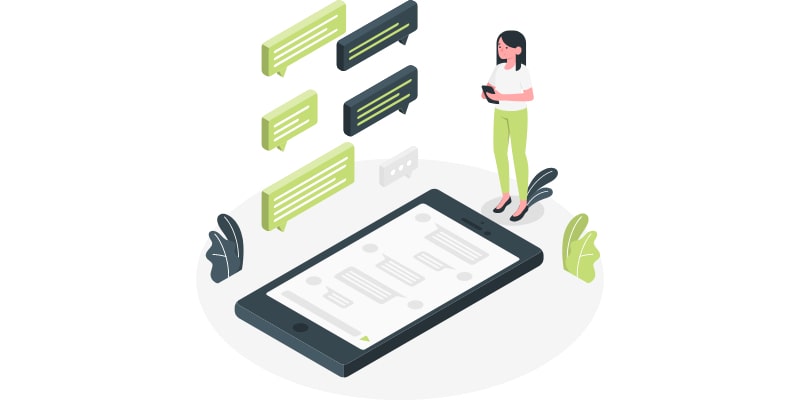
AI in Travel and Hospitality: Transforming the Industry
AI in travel and hospitality is revolutionizing how businesses improve operational efficiency and enhance guest experiences. Hospitality firms are leveraging artificial intelligence in the hotel industry to bolster profitability and streamline operations. By integrating AI algorithms into their systems, hotels can optimize revenue management, dynamic pricing, and cost management strategies.
In the hospitality sector, AI is being used for staff augmentation, automation, and sustainability initiatives, reducing waste while enhancing the bottom line. The future of AI in hospitality is not only about automation but also about personalizing guest experiences through chatbots and virtual assistants that offer real-time assistance and seamless room service.
Key Takeaways
✅ The adoption of AI in the hospitality industry is expected to grow by 60% annually from 2023 to 2033.
✅ AI-powered analytics allow hotels to personalize services based on guest data and preferences.
✅ AI plays a critical role in hospitality marketing artificial intelligence, enabling data-driven marketing campaigns for improved customer engagement.
✅ Smart rooms, AI-powered energy management, and waste reduction strategies are helping hotels become more sustainable.
✅ AI in the hotel industry is enhancing security measures, guest verification, and automated check-ins.
AI in Hospitality Explained
The market for AI technology in hospitality was valued at $90 million in 2023 and is projected to exceed $8 billion by 2033. This rapid growth is fueled by machine learning and the integration of AI across front desk, housekeeping, and back-office operations.
Leading hospitality brands are already implementing AI-powered solutions:
Marriott Bonvoy uses AI-powered search to personalize search experiences for luxury home rentals.
Universal Orlando Resort has introduced facial recognition AI technology for seamless, contactless entry.
InnVest Hotels employs AI-enhanced hotel delivery robots for efficient room service.
Radisson Hotel Group leverages AI-driven immersive sales experiences to help event planners visualize venues in real time.
Beyond guest-facing applications, AI is driving hospitality marketing AI, business intelligence, and sustainability initiatives. Research shows that 60% of hotels and 70% of travel agencies plan to leverage AI to stay competitive.
As artificial intelligence AI continues to evolve, its impact on the hotel industry will only deepen, redefining how businesses personalize guest experiences, optimize marketing campaigns, and enhance operational efficiency.
Another excellent way to use AI within the hospitality sector is for front-facing customer services, such as direct messaging and online chat services responding to simple queries or requests.
AI chatbots can be used on social media platforms to answer queries around the clock and get almost instantaneous responses.
This is essential to hotels as it provides instantaneous response times which are almost impossible with human-to-human interaction.
3. Data Analysis
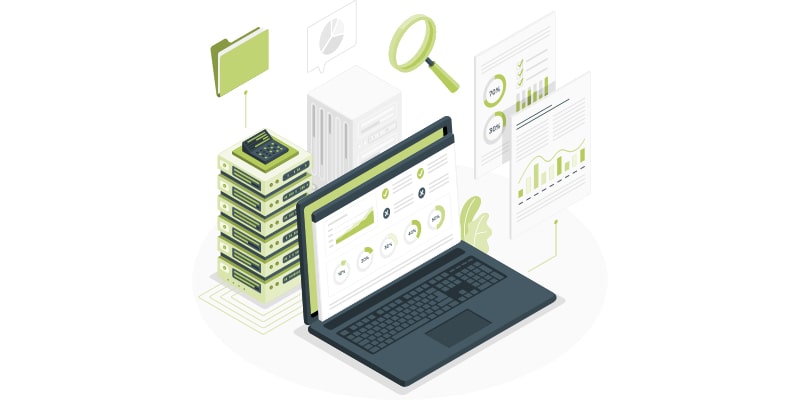
Uses of Artificial Intelligence is also great within the hospitality sector; it can be used for data analysis by quickly sorting through huge amounts of data and developing important conclusions about current or potential customers.
The ‘Dorchester Collection hotel chain’ is one such example of a hotel that has used AI data analysis to sort through data collected via online reviews or surveys.
The Uses of Artificial Intelligence has been able to do an analysis of the information to draw conclusions about overall performance.
Benefits of AI in the Hotel Industry
AI is also great within the hospitality sector; it can be used for data analysis by quickly sorting through huge amounts of data and developing important conclusions about current or potential customers.
The ‘Dorchester Collection hotel chain’ is one such example of a hotel that has used AI data analysis to sort through data collected via online reviews or surveys.
The Uses of Artificial Intelligence has been able to do an analysis of the information to draw conclusions about overall performance.
1. More Personalized Search Results

Last year, a tech company known as Avvio launched the world’s first direct booking engine powered by machine learning, Allora.
Uses of Artificial Intelligence brings insights from users’ interactions together and determines the way to optimize their experience by finding the best hotel or online experiences.
By personalizing search results, the engine increases the chances of interaction, thus taking personalization to a whole new level.
2. Managing Big Data Easily
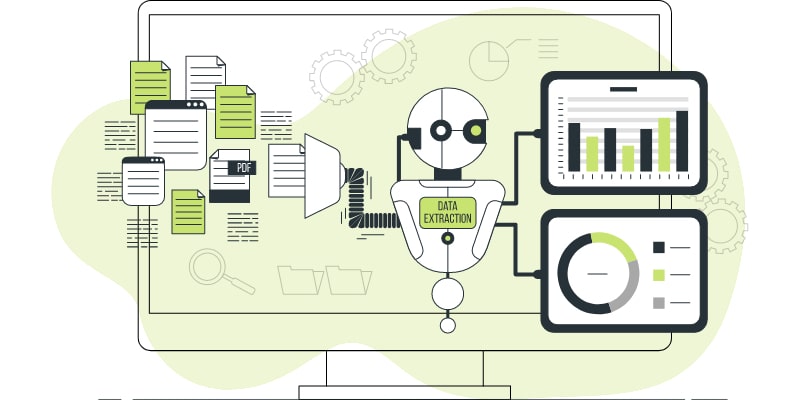
Artificial intelligence has the capability of analyzing big amounts of data in a short amount of time.
By streamlining the data analysis process, an activity operator can better utilize that data to make decisions regarding their business strategy.
The challenge of analyzing data will be simplified by technology that is intelligent enough to make strategic choices about guest characteristics and behavior.
3. Enabling Travelers to Research Travel Options with a Chatbot
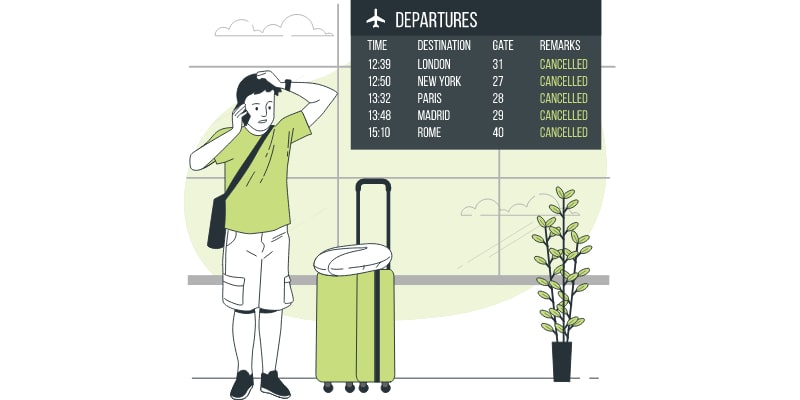
The list of the features and benefits that the company’s chatbot is recently capable of providing are-
- Assistance with existing reservations
- Answering general queries about property policies
Answering queries regarding transport, data changes, arrival or departure times, and payment.
What are the things you must consider before implementing AI?
Every technology comes with some disadvantages or issues to keep in mind. All you need is support from an expert company that can help you in the adoption process and after the deployment. Any company can provide you AI services but you need a company that can provide you support services even after the completion of the project. Here are two things you will have to keep in mind about AI:
1. Still Developing
Even though AI in hospitality and AI in travel and hospitality have made tremendous progress in recent years, the field is still evolving. The integration of AI in the hospitality sector has significantly enhanced guest experiences, revenue management, and operational efficiency, yet it remains in its early stages.
Since artificial intelligence AI relies on data-driven insights and AI algorithms, incorrect or biased guest data can result in inaccurate decision-making. This underscores the importance of machine learning advancements and continuous market trends analysis to ensure AI technology improves over time.
As AI in the hospitality industry evolves, businesses will leverage AI for hospitality marketing AI, chatbots and virtual assistants, and personalized guest experiences. AI-powered room service, automated bookings, and smart pricing strategies will further optimize the hotel industry.
While artificial intelligence in hotel industry is not yet fully autonomous in making critical decisions, the future of AI in hospitality will revolutionize marketing campaigns, enhance operational workflows, and drive efficiency across the artificial intelligence in hotel landscape. The adoption of hospitality marketing artificial intelligence will help businesses stay competitive by delivering more customized experiences and maximizing profitability.
2. Data Privacy Issues
This is one of the most critical concerns that all businesses looking to take advantage of AI will encounter.
Data collected by the computers or machines during interactions with users can be potentially used for other purposes; consequently, the risk of data privacy violation is involved.
This means that hotels may face some problems with getting more customers to use their AI-based tools.
Closing Remarks about AI in Hospitality Industry
AI definitely has a scope in the hospitality industry i.e., From assisting hotel personnel with answering guests’ queries to providing personalized recommendations via dedicated search engines.
Although, in order for technology to become the new best friend for both hoteliers and travelers. There is a need to resolve some significant challenges. With increasingly countries working on data privacy and other AI-related laws.
It’s reasonable to put forward that the hospitality industry will have to follow plenty of regulations.
The key to the success of hoteliers here is to show that they cater to the individual side of the hospitality industry. And successfully accelerate the customer experience.
And if all these requirements are fulfilled. It’s all right to assume that AI will soon begin changing the way hotels are run.
It’s time to make a decision! and Develop an AI-Based App for Your Hotel Industry. Looking for a reliable team of app developers to transform your hospitality business? We have the experts for you.
Our team of AI specialists will help you adopt the technology and leverage it in the best possible way. Get in touch with us today to get started on this digital journey of transformation together.
FAQs
How is AI used in hotels and restaurants?
AI is used for chatbots, self-check-in kiosks, personalized guest experiences, and dynamic pricing to improve efficiency and customer service.
What are the benefits of AI for hotels and restaurants?
It reduces operational costs, speeds up services, increases guest satisfaction, and improves revenue through automation and smart insights.
Are there real-world examples of AI in hospitality?
Yes, many hotels use AI-powered concierges, robots for room service, and facial recognition for fast check-in.
Is AI adoption in hospitality growing?
Yes, more businesses are investing in AI to stay competitive and meet modern guest expectations.
